Brought to you by:
• Enterpret—Transform customer feedback into product growth
• Anvil—The fastest way to build software for documents
• Webflow—The web experience platform
—
Mike Maples, Jr. is a legendary early-stage startup investor and a co-founder and partner at Floodgate. He’s made early bets on transformative companies like Twitter, Lyft, Twitch, Okta, Rappi, and Applied Intuition and is one of the pioneers of seed-stage investing as a category. He’s been on the Forbes Midas List eight times and enjoys sharing the lessons he’s learned from his years studying iconic companies. In his new book, Pattern Breakers: Why Some Start-Ups Change the Future, co-authored with Peter Ziebelman, he discusses what he’s found separates startups and founders that break through and change the world from those that don’t. After spending years reviewing the notes and decks from the thousands of startups he’s known over the past two decades, he’s uncovered three ways that breakthrough founders think and act differently. In our conversation, Mike talks about:
The three elements of breakthrough startup ideas
Why you need to both think and act differently
How to avoid the “comparison trap” and “conformity trap”
The importance of movements, storytelling, and healthy disagreeableness in startup success
How to apply pattern-breaking principles within large companies
Mike’s one piece of advice for founders
Much more
Special offer: Pre-order Mike’s book here and get a second signed copy for free. Limited copies are available, so order ASAP: patternbreakers.com/lenny.
Listen now on Apple, Spotify, and YouTube.
Some takeaways:
Get out of the present: Instead of just thinking about solving current problems, you need to immerse yourself in the future. Look for emerging trends, technologies, or shifts in behavior that suggest where the world is heading. Great innovations often stem from individuals who immerse themselves deeply in a niche or cutting-edge area. By getting their hands dirty and being passionately curious, they uncover insights, or “earned secrets,” that others overlook.
Great startup ideas share three elements:
Inflections: External shifts that create potential for radical change in how people think, feel, and behave.
Insights: A unique understanding of how to harness these inflections and enable a future that the company believes in.
Founder-future fit: An alignment between the founders and the future they envision, in terms of their skills, motivations, and network.
Three things that successful founders do differently:
Movements: Successful founders create movements, not just products. A movement aligns early believers around a higher purpose, leveraging their emotional commitment rather than just pragmatic benefits.
Storytelling: Frame your startup’s story as a hero’s journey. Position yourself not as the hero but as the guide (like Obi-Wan Kenobi) who invites customers (the heroes) to embark on a transformative journey toward a better future. Tailor your narrative to resonate with different stakeholders—investors, customers, employees—by emphasizing how they can achieve their aspirations through your vision.
Disagreeableness: Founders who challenge the status quo often appear disagreeable because they defy conventional norms. They drive change by questioning existing patterns and persuading others to embrace new ways of thinking and acting.
Develop non-consensus and right insights: Form insights about how to leverage inflection points that are both non-consensus and right. The best startup ideas often face initial skepticism or hostility but inspire genuine love from a subset of users. Over time, early believers multiply until what was once considered heresy becomes conventional wisdom. Aim to create polarizing products—people should love or hate them at first. Neutral reactions rarely lead to breakout success.
Structure your pitch deck like so:
Slide 1: State what you do: Clearly state what your company does in simple terms, assuming the audience knows nothing about your business. Example: “We’re Airbnb. We enable you to rent out your extra room as accommodation.”
Slide 2: Highlight your unique insight: Present a non-obvious insight that drives your business.
Slide 3: Provide proof points: Provide evidence that validates your insight and demonstrates traction.
Where to find Mike Maples, Jr.:
• X: https://x.com/m2jr
• LinkedIn: https://www.linkedin.com/in/maples/
• Substack: https://greatness.substack.com/
• Website: https://www.floodgate.com/
Where to find Lenny:
• Newsletter: https://www.lennysnewsletter.com
• X: https://twitter.com/lennysan
• LinkedIn: https://www.linkedin.com/in/lennyrachitsky/
In this episode, we cover:
(00:00) Mike’s background
(03:10) The inspiration behind Pattern Breakers
(08:09) Uncovering startup insights
(11:37) A quick summary of Pattern Breakers
(13:52) Coming up with an idea
(15:30) Inflections
(17:03) Examples of inflections
(28:02) Insights
(36:49) The power of surprises
(47:31) Founder-future fit
(55:28) Advice for aspiring founders
(56:33) Living in the future: valid opinions
(58:32) Identifying lighthouse customers
(01:00:45) The importance of desperation in customer needs
(01:03:49) Creating movements and storytelling
(01:24:14) The role of disagreeableness in startups
(01:34:34) Applying these principles within a company
(01:40:35) Lightning round
Referenced:
• Pattern Breakers: Why Some Start-Ups Change the Future: https://www.amazon.com/Pattern-Breakers-Start-Ups-Change-Future/dp/1541704355
• Justin.tv: https://en.wikipedia.org/wiki/Justin.tv
• Airbnb’s CEO says a $40 cereal box changed the course of the multibillion-dollar company: https://fortune.com/2023/04/19/airbnb-ceo-cereal-box-investors-changed-everything-billion-dollar-company/
• Brian Chesky’s new playbook: https://www.lennysnewsletter.com/p/brian-cheskys-contrarian-approach
• The Unconventional Exit: How Justin Kan Sold His First Startup on eBay: https://medium.datadriveninvestor.com/the-unconventional-exit-how-justin-kan-sold-his-first-startup-on-ebay-4d705afe1354
• Kyle Vogt on LinkedIn: https://www.linkedin.com/in/kylevogt/
• The State of Telehealth Before and After the COVID-19 Pandemic: https://www.ncbi.nlm.nih.gov/pmc/articles/PMC9035352/
• The Craigslist Killers: https://www.gq.com/story/craigslist-killers
• The social radar: Y Combinator’s secret weapon | Jessica Livingston (co-founder of Y Combinator, author, podcast host): https://www.lennysnewsletter.com/p/the-social-radar-jessica-livingston
• Michael Seibel on LinkedIn: https://www.linkedin.com/in/mwseibel/
• The Airbnb Story: How Three Ordinary Guys Disrupted an Industry, Made Billions ... and Created Plenty of Controversy: https://www.amazon.com/Airbnb-Story-Ordinary-Disrupted-Controversy/dp/0544952669
• Scott Cook: https://www.forbes.com/profile/scott-cook/
• Chegg: https://www.chegg.com/
• Aayush Phumbhra on LinkedIn: https://www.linkedin.com/in/aayush/
• Osman Rashid on LinkedIn: https://www.linkedin.com/in/osmanrashid/
• Okta: https://www.okta.com/
• The Man Who Makes the Future: Wired Icon Marc Andreessen: https://www.wired.com/2012/04/ff-andreessen/
• Peter Ludwig on LinkedIn: https://www.linkedin.com/in/peterwludwig/
• Qasar Younis on LinkedIn: https://www.linkedin.com/in/qasar/
• Paul Allen’s website: https://paulallen.com/
• Louis Pasteur quote: https://www.forbes.com/quotes/6145/
• What was Atrium and why did it fail? https://www.failory.com/cemetery/atrium
• Patrick Collison on LinkedIn: https://www.linkedin.com/in/patrickcollison/
• Drew Houston on LinkedIn: https://www.linkedin.com/in/drewhouston/
• William Gibson’s quote: https://www.goodreads.com/quotes/681-the-future-is-already-here-it-s-just-not-evenly
• Maddie Hall on LinkedIn: https://www.linkedin.com/in/maddie-hall-76293135/
• Living Carbon: https://www.livingcarbon.com
• Zenefits (now Trinet): https://connect.trinet.com/
• Sam Altman on X: https://x.com/sama
• Steve Wozniak on LinkedIn: https://www.linkedin.com/in/wozniaksteve/
• Horsley Bridge Partners: https://www.horsleybridge.com/
• David Swensen: https://en.wikipedia.org/wiki/David_F._Swensen
• Judith Elsea on LinkedIn: https://www.linkedin.com/in/judithelsea/
• 7 Powers: The Foundations of Business Strategy: https://www.amazon.com/7-Powers-Foundations-Business-Strategy/dp/0998116319
• Business strategy with Hamilton Helmer (author of 7 Powers): https://www.lennysnewsletter.com/p/business-strategy-with-hamilton-helmer
• Lyft’s Focus on Community and the Story Behind the Pink Mustache: https://techcrunch.com/2012/09/17/lyfts-focus-on-community-and-the-story-behind-the-pink-mustache/
• Logan Green on LinkedIn: https://www.linkedin.com/in/logangreen/
• John Zimmer on LinkedIn: https://www.linkedin.com/in/johnzimmer11/
• Storytelling with Nancy Duarte: How to craft compelling presentations and tell a story that sticks: https://www.lennysnewsletter.com/p/storytelling-with-nancy-duarte-how
• Steve Jobs Introducing the iPhone at MacWorld 2007: https://www.youtube.com/watch?v=x7qPAY9JqE4
• Jonathan Livingston Seagull: https://www.amazon.com/Jonathan-Livingston-Seagull-Richard-Bach/dp/0743278909
• The paths to power: How to grow your influence and advance your career | Jeffrey Pfeffer (author of 7 Rules of Power, professor at Stanford GSB): https://www.lennysnewsletter.com/p/the-paths-to-power-jeffrey-pfeffer
• Robin Roberts on LinkedIn: https://www.linkedin.com/in/robin-roberts-393a934b/
• Skunkworks: https://www.lockheedmartin.com/en-us/who-we-are/business-areas/aeronautics/skunkworks.html
• Vision, conviction, and hype: How to build 0 to 1 inside a company | Mihika Kapoor (Product at Figma): https://www.lennysnewsletter.com/p/vision-conviction-hype-mihika-kapoor
• Hard-won lessons building 0 to 1 inside Atlassian | Tanguy Crusson (Head of Jira Product Discovery): https://www.lennysnewsletter.com/p/building-0-to-1-inside-atlassian-tanguy-crusson
• Figma: https://www.figma.com/
• Atlassian: https://www.atlassian.com/
• Vinod Khosla: https://www.khoslaventures.com/team/vinod-khosla/
• Top Five Regrets of the Dying: A Life Transformed by the Dearly Departing: https://www.amazon.com/Top-Five-Regrets-Dying-Transformed-ebook/dp/B07KNRLY1L
• Chase, Chance, and Creativity: The Lucky Art of Novelty: https://www.amazon.com/Chase-Chance-Creativity-Lucky-Novelty/dp/0262511355
• Clay Christensen’s books: https://www.amazon.com/stores/Clayton-M.-Christensen/author/B000APPD3Y
• Resonate: Present Visual Stories That Transform: https://www.amazon.com/Resonate-Present-Stories-Transform-Audiences/dp/0470632011
• Ferrari on Prime: https://www.amazon.com/Ferrari-Adam-Driver/dp/B0CNDBN672
• Montblanc fountain pens: https://www.montblanc.com/en-us
Production and marketing by https://penname.co/. For inquiries about sponsoring the podcast, email podcast@lennyrachitsky.com.
Lenny may be an investor in the companies discussed.


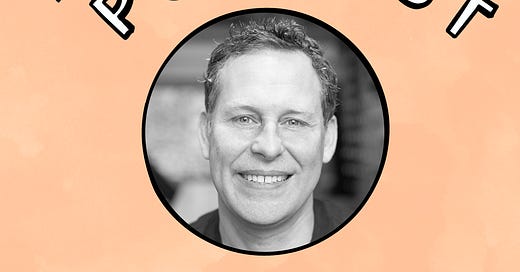
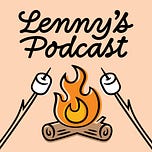






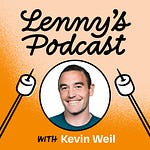

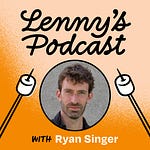
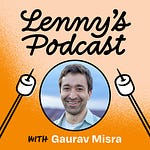
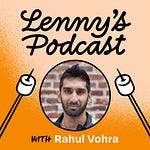
Share this post